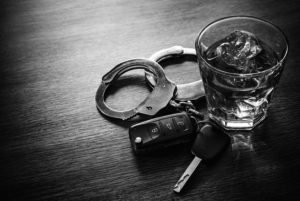 This is the 5th part of our Step By Step Guide to a DUI
This is the 5th part of our Step By Step Guide to a DUI
The police will attempt to determine blood alcohol level through the use of a breathalyzer that is kept at the police station or through a blood test that is administered at a hospital. A blood test, in addition to revealing a blood alcohol level, will also reveal whether any drugs are in the driver’s bloodstream. Prior to submitting to either of these tests, the officer is required to read the DL-16 form provided by the Pennsylvania Department of Transportation. This form will put the motorist on notice that they have no legal right to refuse the chemical test as well as setting forth the penalties resulting from the refusal if the motorist so chooses.
Prior to submitting to either of these tests, the officer is required to read the DL-16 form provided by the Pennsylvania Department of Transportation. This form will put the motorist on notice that they have no legal right to refuse the chemical test as well as setting forth the penalties resulting from the refusal if the motorist so chooses.
Diligently Working to Protect Your Interests
It should be noted that during this entire testing process, the police must follow guidelines that are set forth for them by PennDot and the Pennsylvania Code. Failure of the police to properly follow these procedures oftentimes provides the motorist with a valid defense to the charge of driving under the influence (DUI) or driving after imbibing (DAI). This is an area where an experienced Delaware County breathalyzer test lawyer may exploit for the benefit of his or her client in that police officers do not always satisfactorily comply with the proper procedure.
I provide skillful, results-oriented representation to people who have been accused of DUI/DAI offenses. If I find that your rights were violated at any point in the testing process or that procedure was not followed according to the law, I will take immediate action to have the charges against you reduced or dismissed immediately.

